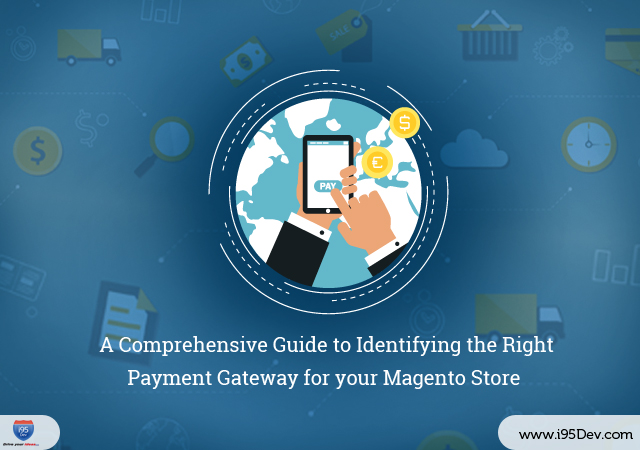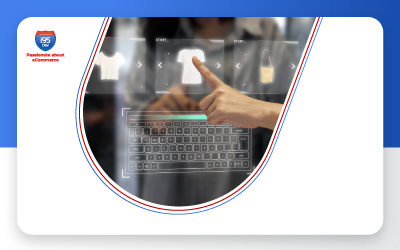Faster Payments
You no longer have to wait for the check to arrive or for it to clear; with online payments making transactions in a matter of seconds are undoubtedly much faster than manual payments. Online payments assure you with almost immediate confirmations of transactions and improve cash flow for your organization.
Satisfying Customers
Customers are more comfortable to online transactions today than few years before. They no longer prefer to wait for buying or selling a product, they want to do it quickly and easily. Websites supporting online transactions are more successful in alluring customers and improving sales.
Removes hassles
Online payments save you from the trouble of depositing checks or recording of payments manually. Online payments set up for your website are auto processes and need no manual intervention. You do not have to manage any customer debit/credit card information, as all updates to records occur automatically.
Profit versus cost
Obviously, anything of value comes with a cost, and so is with online transactions as your payment provider will charge you a fee per transaction and other set up or monthly fees. But then it’s a win-win situation for you and the payment provider as online payments gives you more than it takes from you; it helps grow your customer base multifold and charges just a slice out of a large pie you earn through it.
Be it big or small, businesses are insisted to jump onto the internet bandwagon for more and more customers being ready to shell out for products and services online. But, it’s harder than you may imagine making your website capable of handling online transactions, as there’s a lot of complexity involved. Consider a scenario where your customer has an American Express card to use while your merchant account handles only Visa or Master Card. All you need to do is to mention the cards accepted, as your shopping cart software may not be compatible with your payment processor. For better and fast transactions, it is always good to have own credit card processing software but the cost behind having one might be impractical for small and medium sized businesses.
However, to understand online payment, it is important to understand the following terminologies involved.
Payment Gateway is the online equivalent to a brick and mortar point of sale system which allows for secure transactions between merchants and customers.
Payment processors enable merchants to receive debit or credit card payments online by providing a connection to a bank. It is a service that validates the debit/credit card details, checks for sufficient funds to cover the payments. Once validated, the transaction is authorized and the funds are transferred from the buyer’s account and the status of the transaction is communicated back to the payment gateway which in turn sends a status message available in the website.
Payment Provider is the company that operates Payment Gateway or Payment processor services. Payment systems, on the other hand, are services offered by Payment Providers; each payment system differs from the other in terms of features and/or pricing.
Every payment made with a debit or credit card involves the transfer of funds to a Merchant account, which a merchant holds directly with a bank. To accept online payments, the seller needs to set up a merchant account with payment provider. With successful completions of online transaction, funds are transferred from the buyer’s account to the merchant account. It is a kind of account used exclusively to holds funds from card transactions; funds accumulating in merchant account are transferred to the respective organization’s bank account on a regular basis.
PCI compliance is adherence to a set of security standards developed solely to protect card information during and after a financial transaction and reduce fraud. It comes into prominence when a merchant or payment gateway sets their payment environment up in a way that meets the Payment Card Industry Data Security Standard (PCI DSS).
Ecommerce players process payments online to cater to its huge customer base. A secure payment gateway allows businesses to list merchandise or services online and automatically process debit and credit cards or other forms of payment. Online business has always been vulnerable to fraud but modern payments processing services include security measures that verify card number and capture potential criminal attempts before a transaction takes place. Moreover, inclusion of trust symbols such as Verisign, McAfee Secure, TRUSTe, etc. instill confidence among online customers.
Top 6 most widely used online Payment Gateways are as follows:
Authorize.Net
Most widely used Payment Gateway has a user base of more than 300,000 merchants. Prominent ecommerce platforms such as Magento, Volusion and X-Cart are designed to accept payments through Authorize.Net easily.
Pricing: Setup fee ($99), costs ($20/month) and charges ($0.10/transaction fee). For more details, please refer Authorize.Net pricing
PayPal
Most widely used payment acquirer has over 156.9 million active accounts worldwide on 3rd quarter of 2014.
Pricing: No setup fees or monthly fees are necessary. PayPal charges as per the scale of your business. Kindly refer PayPal merchant fees for detailed pricing
Amazon Payments
Users use Amazon Payments API to receive money and ACH to send out money.
Pricing: Amazon Payments has standard rate (excluding Amazon Flexible Payments Services and Amazon Local Register) as 2.9% + $0.30 per transaction. For more details, please refer Amazon Payments fees
Stripe
A brilliant payment solution allows web developers to easily integrate a payment system into projects via Stripe’s robust API. It circumvents the tedious sign up process; rather acts as a merchant account for its providers, handling all PCI compliance and merchant approvals.
Pricing: No monthly fees, no hidden costs or fees are necessary. Stripe charges 2.9% + $0.30 per transaction. Kindly refer Stripe Pricing for detailed pricing
Google Checkout
Google Checkout allows users to pay for products and services through an account connected to their Google profile.
Pricing: Refer Google Checkout fees
Dwolla
One of the promising newcomers in the third party payments space, Dwolla is considered to be a direct competitor to PayPal.
Pricing: No fees are required for transactions less than $10. For transactions over $10, Dwolla charges $0.25 per transaction. Refer Dwolla fees for more details












